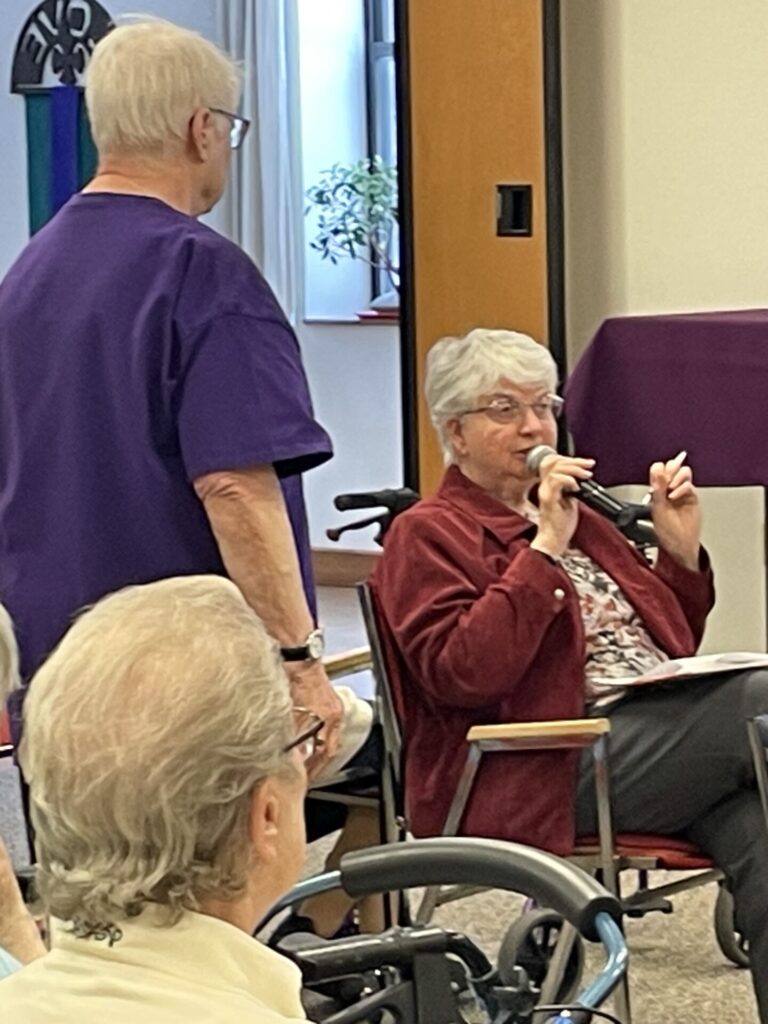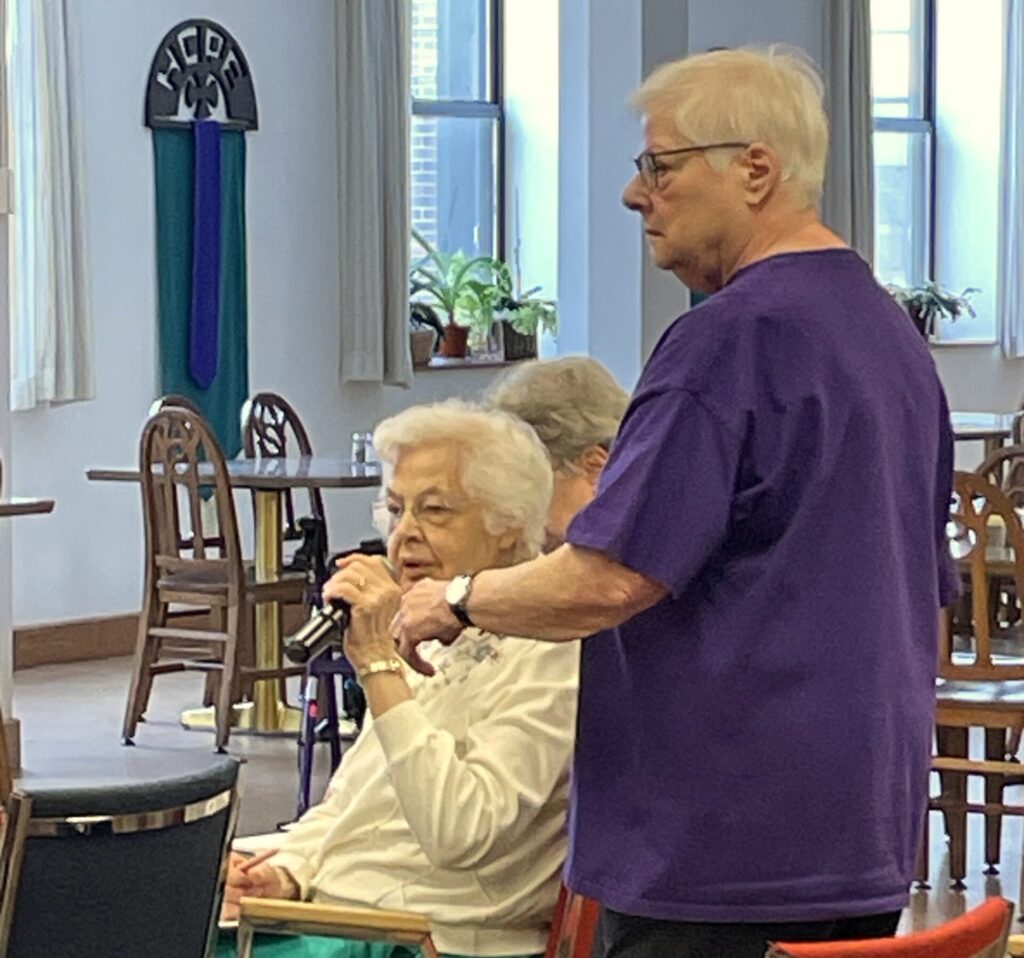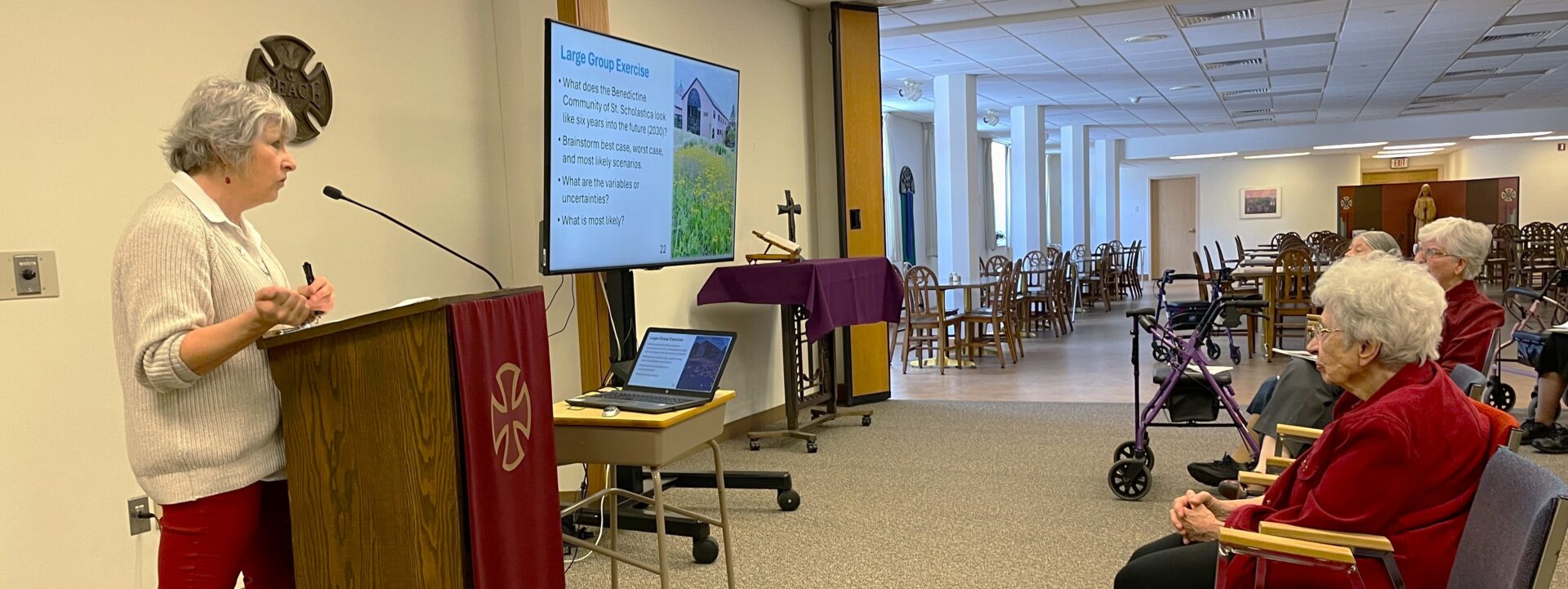
In autumn of 2023, the Community began a new phase in planning our future. We are using an organizational tool called Scenario Planning; that is, planning for a desired future using storytelling. The Monastic Council formed a task force that includes Sister Beverly Horn (chair), Sister Lois Eckes, and Sister Therese Carson. We then began adapting a process used by large corporations to the needs of a religious community. Fortunately, Scenario Planning is versatile. At its heart it is about telling stories about what we want to become.
We developed a procedure to guide our planning, with a completion date of 2030. We then educated ourselves about the theory and practice of Scenario Planning. We learned that future planning is no longer straight-forward because conditions change rapidly, even while we are planning, and so decisions based on today’s realities will be outdated even as they unfold. The process of Scenario Planning, however, takes this into account by including the element of uncertainty.
We will gather information, analyze it, and explore ideas. This will open up our thinking and liberate our creativity so that we imagine widely different options. We will construct stories about what we want our future to look like, and the varied paths that might take us to that end. By creating scenarios – stories – we will broaden the scope of what we believe may happen. We will envision many plausible futures.
Then, when we have explored our stories and have a better view of our potential future, we will decide which ones to adopt. Accepting a variety of scenarios will prepare us to make decisions under rapidly changing conditions. We will keep our options open, knowing that the future will evolve out of our control in unknown ways. We will hold our plans loosely, ready to shift into another path with minimal disruption to our life and mission.
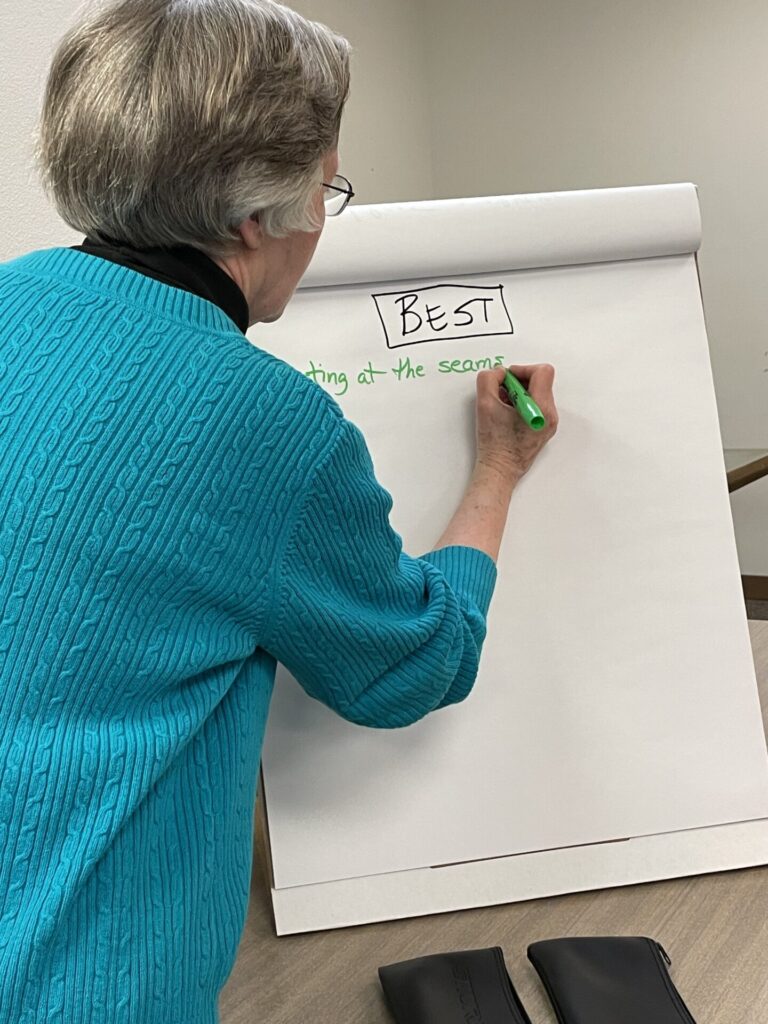
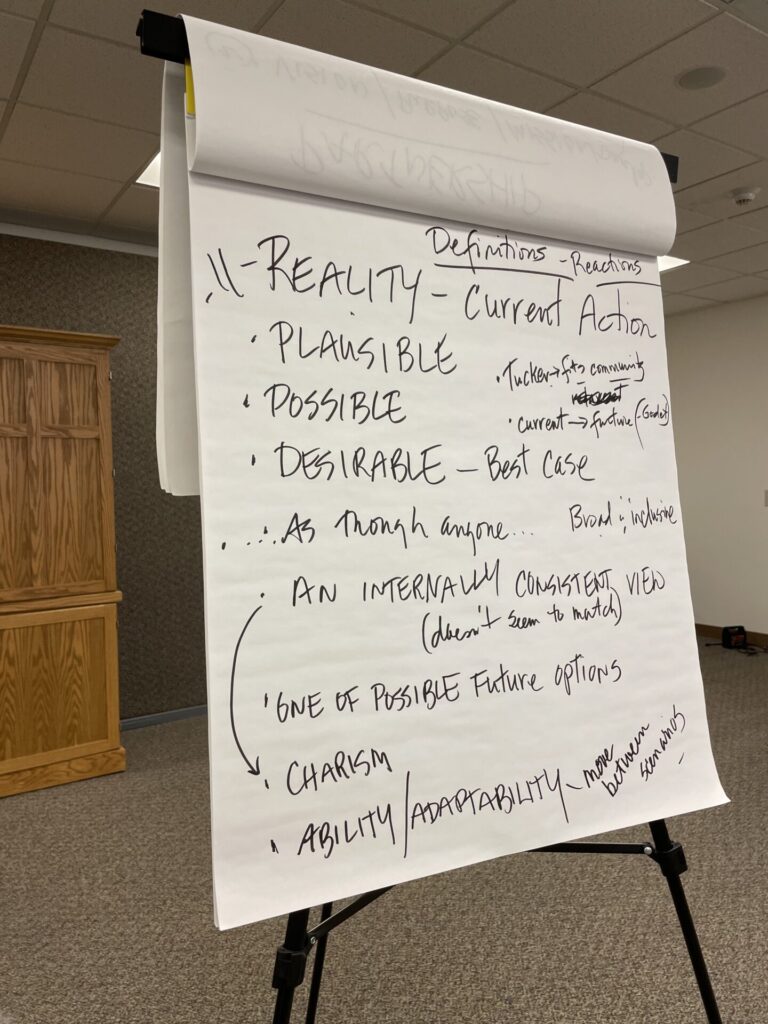
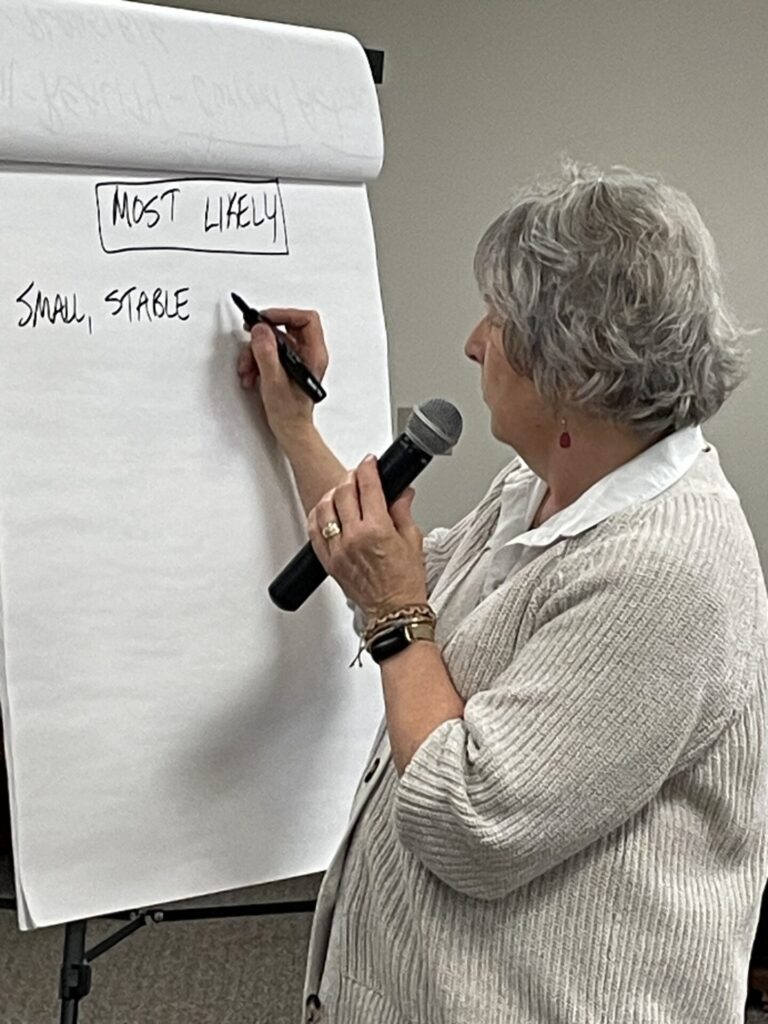
On April 6, 2024, we shared what we learned with the Community. Becky Urbanski, Interim Director of Duluth Benedictine Ministries, has used Scenario Planning in her former position and so led us through two exercises where we used scenarios to make decisions about our future. The first was fun: we are given a fully equipped food truck for our use. We quickly decided to use it to further our ministries and bring the Benedictine charism to a wider community. What will we do with it? (Give it away or establish another nonprofit.) What things do we need to learn? (Health codes, licensing, marketing, food-truck cooking, menu preparation.) With whom can we collaborate to make this work? (Area nonprofits, trade programs, colleges.) Excitement ran high as we thought more broadly, built on each other’s suggestions, and finally came back to earth with what would be plausible. It was a disappointment to remember that we do not, in fact, have a food truck.
The second scenario exercise was grounded in reality. We discussed what the Community will look like in 2030. We talked about membership, vocations, ministries, the roles of our oblates and volunteers, the growth of the Center for Spirituality and Enrichment and of Duluth Benedictine Ministries. We brainstormed best case, worst case, and most likely scenarios. This was an opportunity to dip our toes into the lake and stir our imagination.
Now we will form several scenario-building groups and begin to address our future with creativity and a sense of fun. What, in fact, do we want our Community to look like in six years? We know that, in the end, it is the Holy Spirit who is directing our way. Are we ready to surrender to the future that God has in store for us?
